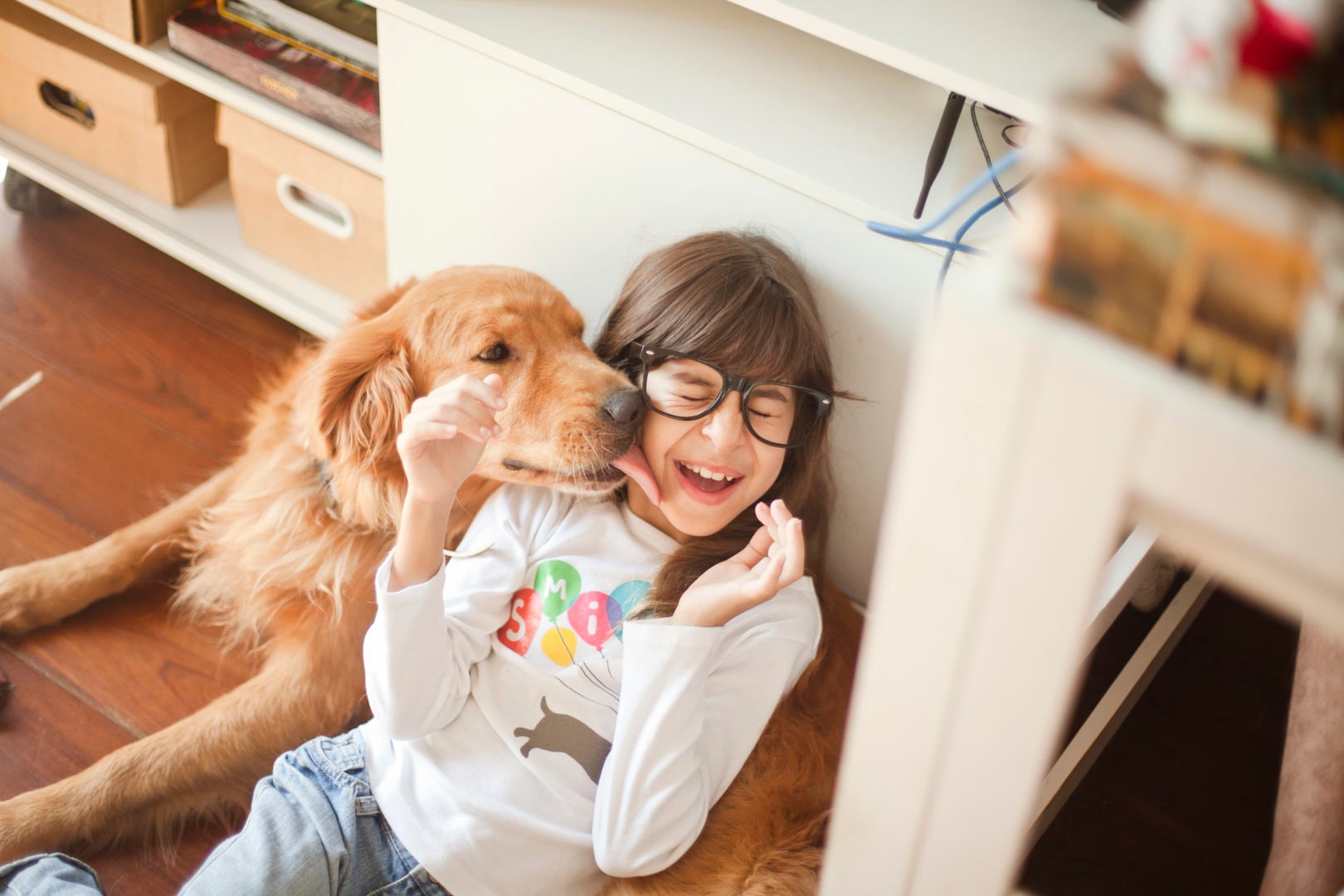Bad breath in dogs might seem like a minor inconvenience, but when it’s your dog with the wicked breath, it’s a huge deal. While there are lots of solutions available, how do you know what works best and when to contact your vet? Two of America’s leading veterinarians, Dr. Marty Becker and Dr. Carol Osborne, along with two popular pet experts, have some terrific tips to help your best friend freshen up!
“The good news is that dental disease is completely preventable,” says Dr. Carol Osborne, an integrative veterinarian from the Chagrin Falls Pet Clinic. “I always recommend that my patients follow a simple four-step processes to maintaining healthy teeth and gums for their pets: annual dental check-ups, brush your pet’s teeth daily for 30 seconds (do not use human toothpaste), provide appropriate chew toys and feed some dry food daily. If your pet does not tolerate the brushing well, you may need to consider professional cleaning.” But there are even more ways to fight back against stinky breath.
Here are 10 tips to bust that bad breath in dogs:
1. Brush teeth correctly
The Veterinary Oral Health Council recommends certain products for a thorough teeth cleaning. Try using a doggie toothpaste like Petsmile, the only dog toothpaste given the organization’s seal of approval, along with an ADA-compliant toothbrush. If you’re having a hard time getting Fido to open up, bring this up with your groomer, who should be able to brush your pup’s teeth for you.
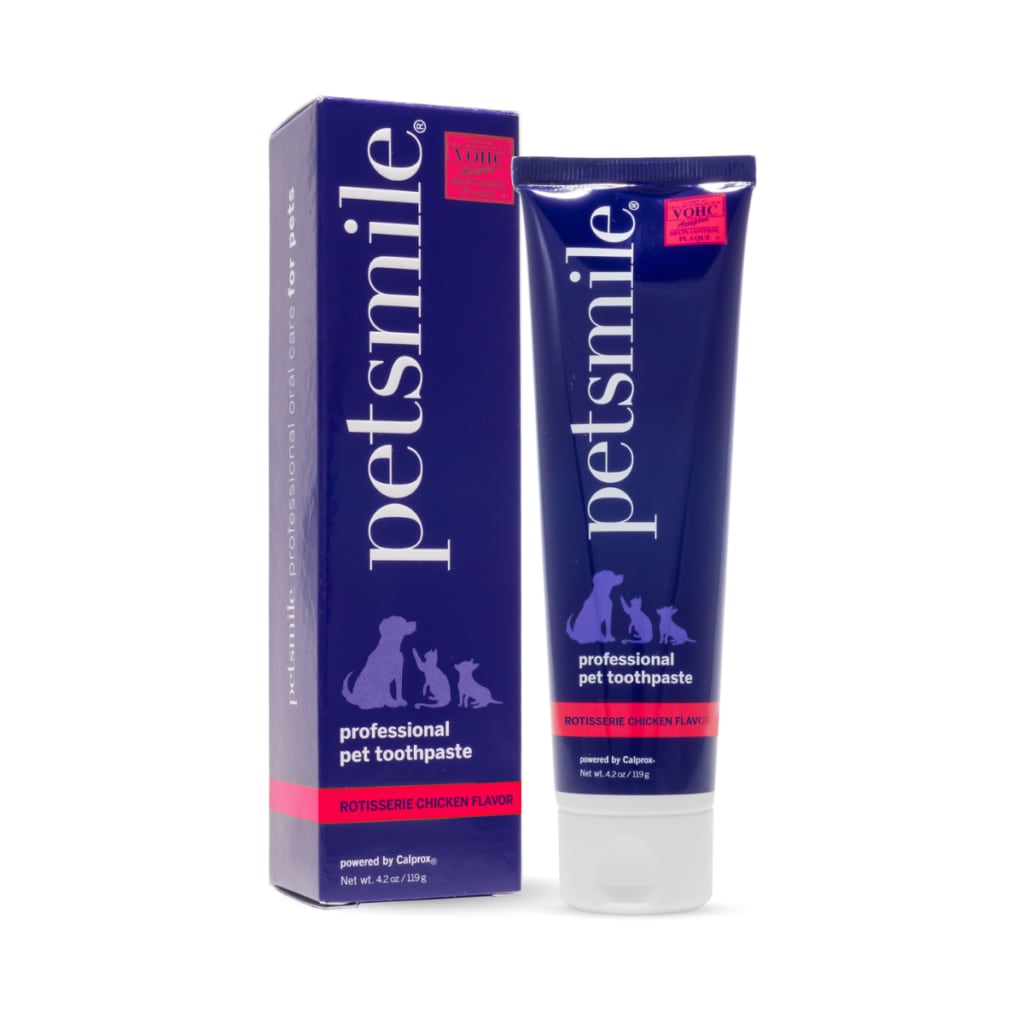
Where to buy: Professional Pet Toothpaste Rotisserie Chicken Flavor (Petsmile, $25)
2. Chew and chomp
Certain rubber toys such as the Kong Extreme allow you to hide cleaning treats or even dog toothpaste inside. As dogs chew on the toy, their teeth get cleaner and their breath gets fresher.
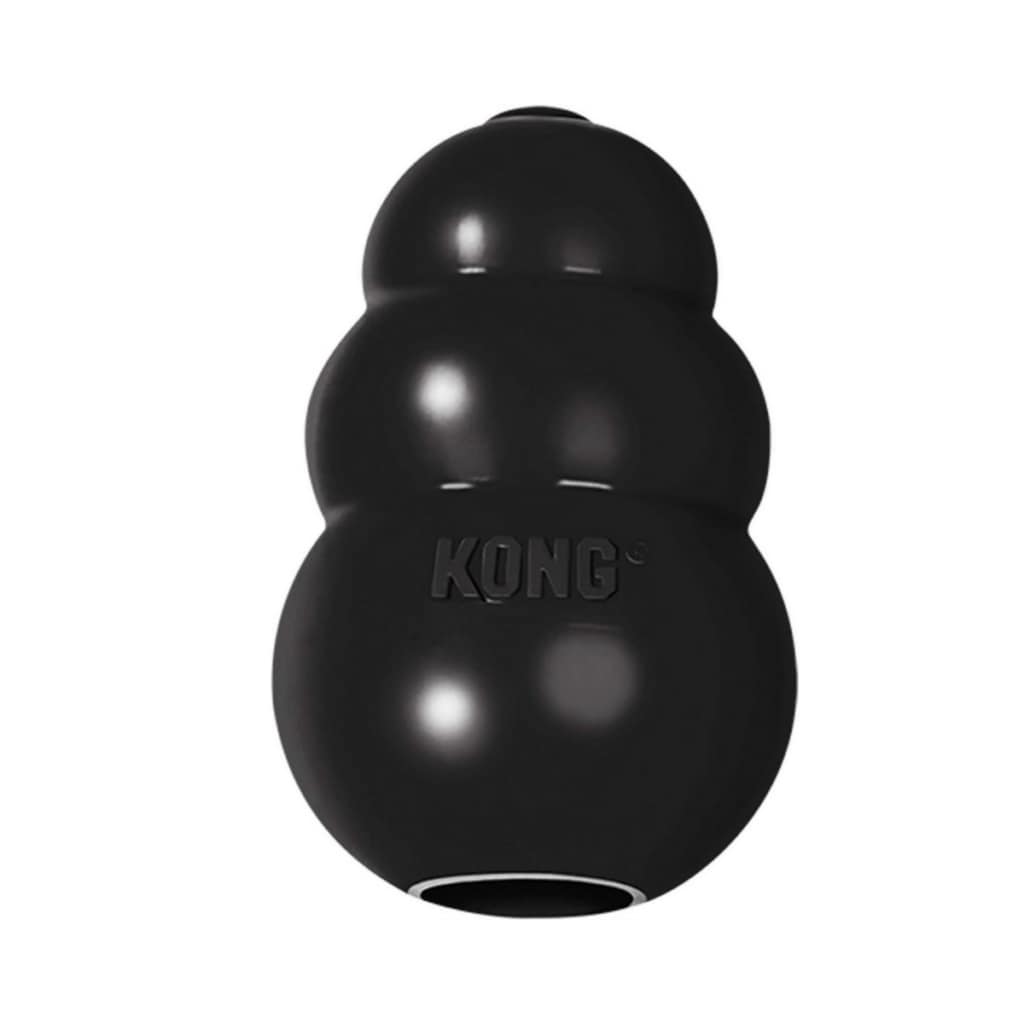
Where to buy: KONG Extreme Dog Toy (Chewy, $15)
3. Visit the vet
“New studies show that 80-90% of pets have dental disease by the age of 3, with many pets showing signs of inflammation — an early sign of periodontal disease — as early as 3 months of age,” says Dr. Marty Becker, a veterinarian and author. He agrees that dogs must be seen by a vet at least once a year.
4. Yapping for yogurt
Sara B. Hansen, owner and editor of “Dog’s Best Life”, suggests using yogurt to remedy bad breath. “Add some plain yogurt to your dog’s daily food allotment. Be sure to only add plain yogurt — no fruity flavors and definitely no sugar substitutes in the yogurt. Sugar substitutes, especially Xylitol, can be deadly for dogs,” she says. “You shouldn’t give your dog more than a teaspoonful or two, and watch to make sure your pup isn’t lactose intolerant. Just like people, some dogs can’t do dairy.”
5. Buy special teeth treats
There are lots of specialized dental care treats on the market. Greenies Dog Dental Treats are among the top rated, and they’re approved for use by the VOHC.
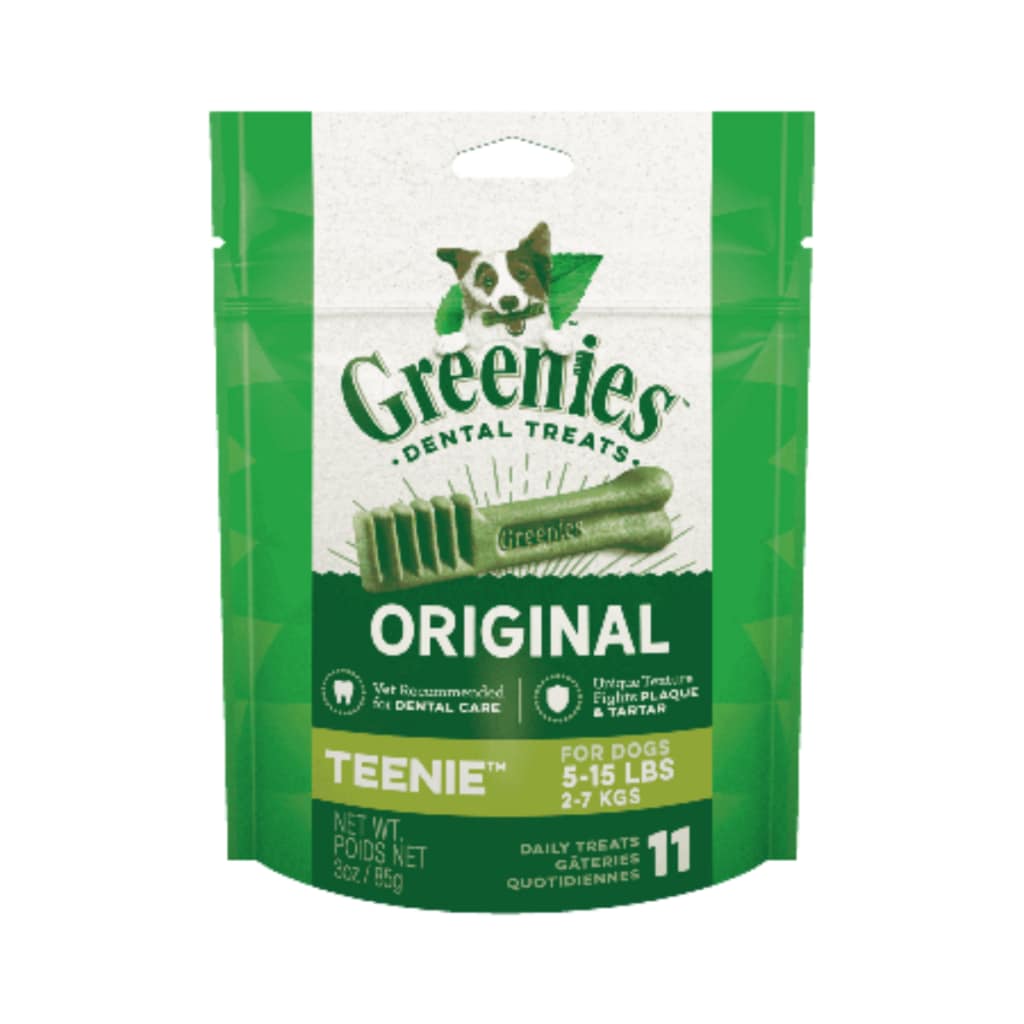
Where to buy: Greenies Original TEENIE Dog Dental Treats ($9+, Greenies)
6. Relish some rawhide
As long as you keep a sharp eye on your pet while they’re indulging, rawhide bones are good for banishing plaque. Take it away as soon as it softens up.
7. Pass the parsley
“My favorite home remedy is to sprinkle chopped fresh parsley or dill on the dog’s food,” Hazel Ketko, owner of Natural Dog Health Remedies, says. “These herbs are antibacterial and natural breath fresheners.”
8. Use water additives
Water additives that fight bad breath in dogs are becoming popular with owners because of the ease of use. Petlab Co., for example, makes dental formulas for both cats and dogs.
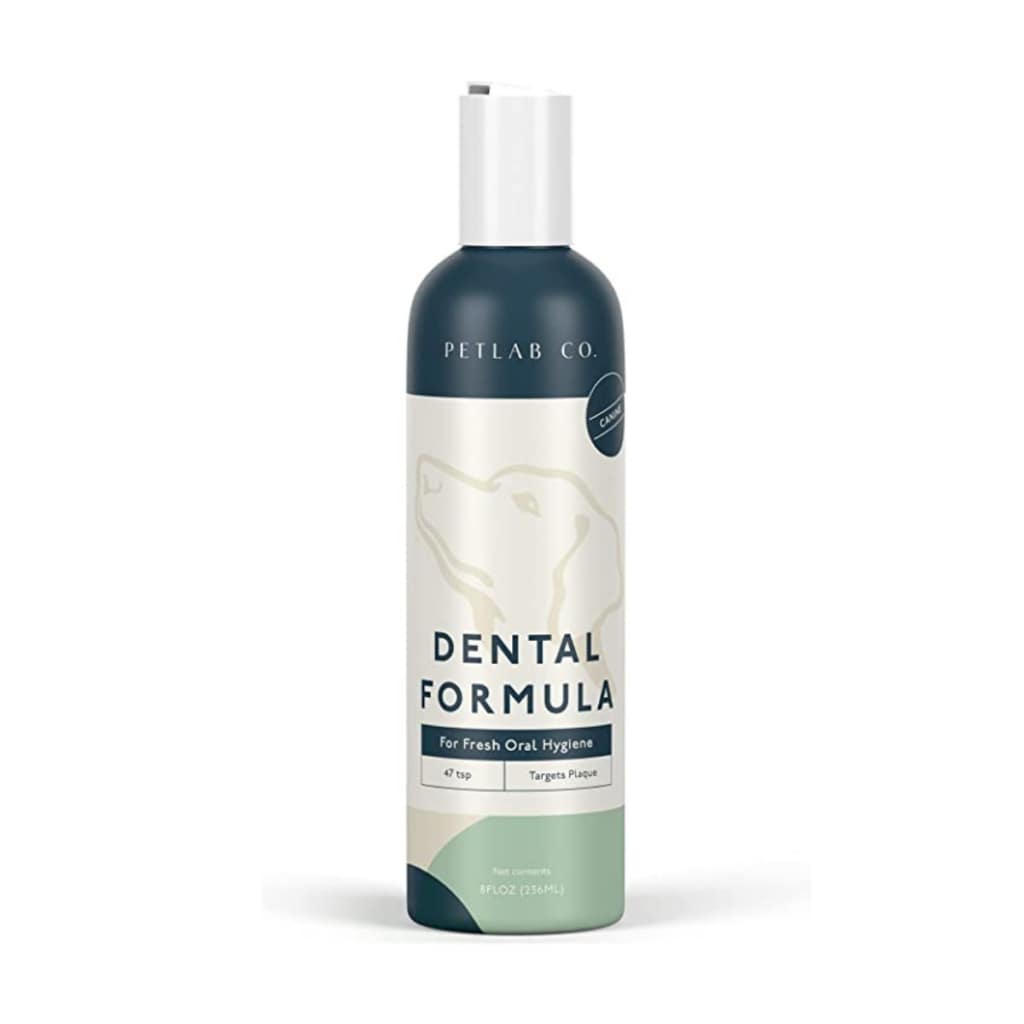
Where to buy: Dog Dental Formula ($30, Petlab Co.)
9. Research dental sealants
If you have a dog breed that’s extra susceptible to decay, ask your vet about dental sealants. They can help keep teeth and gums clean, preventing tooth decay and plaque buildup.
10. Let Toto drink tea
If you suspect your dog’s bad breath is due to upset tummy or indigestion, use a special tea, Ketko suggests. “Make a ginger tea by putting one or two slices of fresh ginger in a cup of hot water and letting it cool down,” she instructs. “After removing the ginger slices, give one to two teaspoons of the ginger tea to your dog.”
When to visit the veterinarian
When in doubt, a trip to the vet’s office is likely the best solution. “In my 35 years as a practicing veterinarian, I’ve seen dozens of products developed that claimed to be an antidote for doggie breath. Most say ‘veterinary recommended’ or ‘veterinary approved,’ but they don’t work,” says Dr. Becker. “Bad breath in dogs and cats is caused by periodontal disease, which is an infection. Infections require treatment.”
Dr. Osborne agrees, adding, “Bad breath is often the first sign of canine dental disease owners recognize. Left untreated, bacteria from your pet’s mouth can lead to liver, kidney and even heart disease.”
